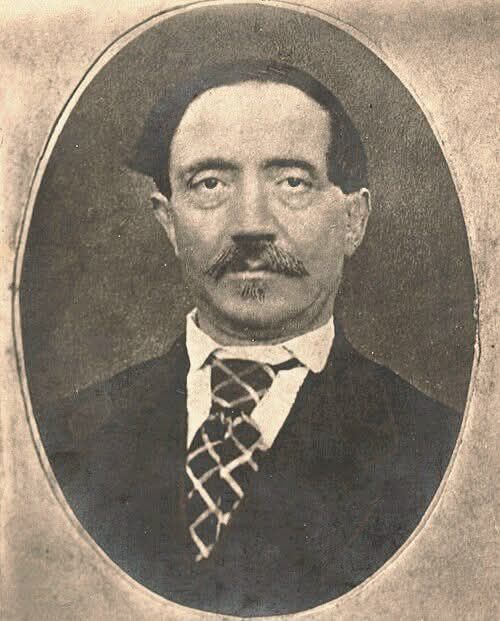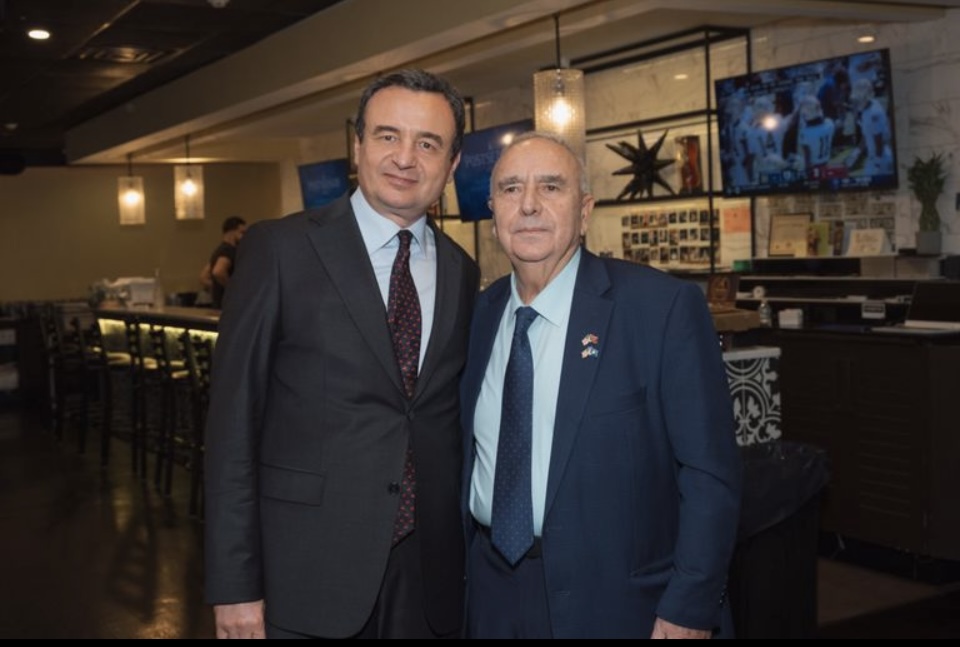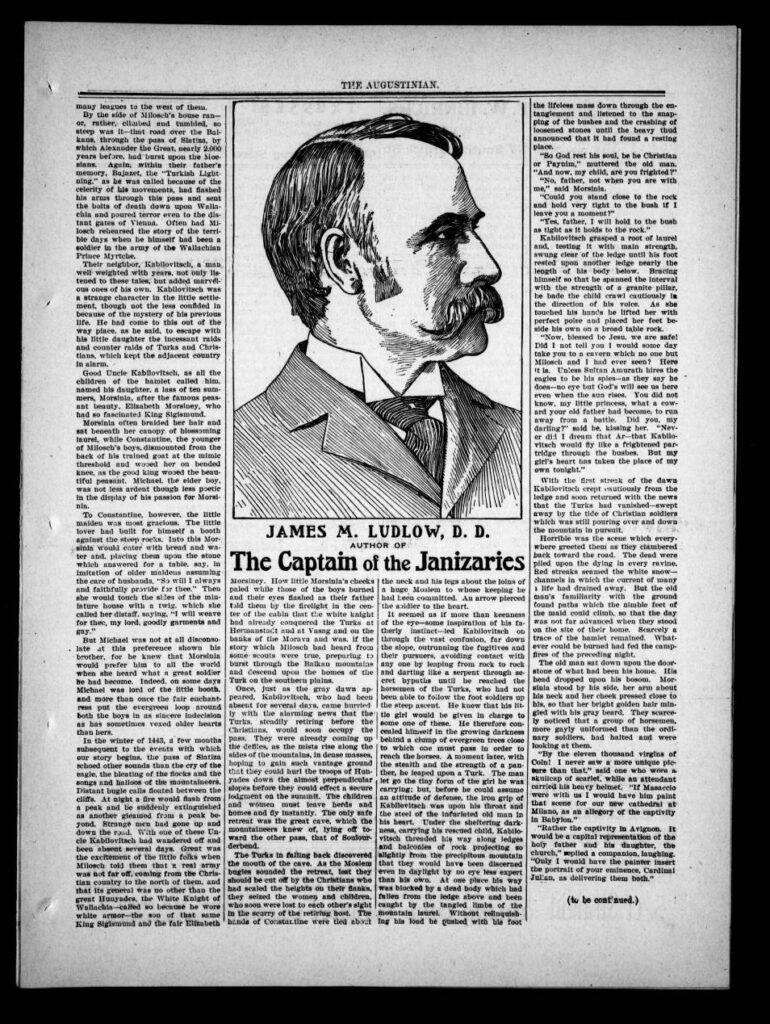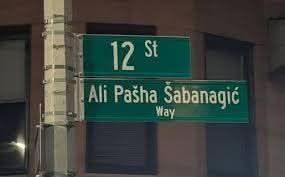
Harallamb Fandi/
Të bësh një portret, aq me tepër të një poeti, nuk është gjë e vogël. Për të duhen shumë gjëra dhe kjo më nxiti të kërkoj në disa drejtime. Nuk jam duke bërë një portret të vizatuar me mjete e shkathësi si piktorët e afirmuar, po diçka tjetër, diçka ku fjala dhe mendimi sjellin nga ato lloj gjurmësh të cilat, veç të përbashkëtave, kanë edhe të veçantat e tyre. Poeti Kastriot Fetahu është një inxhinier rritur midis naftëtarëve, por që në kohën kur ishte gjimnazist u kultivua, madje arriti të shquhet dhe në krijimtarinë letrare. Me talentin që ka s’mund të mos krijonte vlera të qëndrueshme mes radhëve të poetëve dhe shkrimtarëve. Pas diktaturës, si shumë të tjerë, emigroi në SHBA. (Ai e di pse dhe si e ngarkoi mbi supe peshën e mallit). Çiikagoja, qyteti i vlimit të fantazive dhe i realizimeve gjithashtu fantastike, i dha mjaft gjëra që i duheshin dhe në këmbim, si shumë emgirantëve, edhe i mori plot të tjera, po mallin dhe dashurinë për gjithçka që la përtej oqeanit nuk ia preku, madje ia shtoi. Dhe s’ke si të mos e thuash këtë të fundit, sepse poezia e tij duket menjëherë që mbart e zbulon të njëjin mall si t ë mjaft eemigrantëve…
Njohja ime me Kastriotin filloi kur ai në Çikago e unë në Bari, komunikuam gjatë vlerësimit të disa poezive nëpërmjet facebook-ut , duke filluar nga këto vargje, që tashmë më janë bërë pjesë e pandashme e vetes:
“…në dheun e huaj ndihem i pangopur,
askënd nuk po gjej,
askush s’më kërkon…”
S’kisha shumë që kisha lexuar vargjet e mësipërme, shkruar nga poeti ndoshta në një nga baret e Çikagos, i ulur atje pas endjeve në rrugët e qyteit të madh gjithë lëvizje e zhurmë kur u ndesha ne Yuu tube me një video ku një pianiste po shoqëronte recitimin e një poezie titulluar “Ringjallje”, që Kastrioti e kishte shkruar së fundi. Dëgjoja dhe nuk më shqitet nga mendja eleganca e duarve të pianistes, që e prekte tastierën me një butësi tepër ledhatuese. Kur mbaroi recitimi i poezisë dhe pas recitimit edhe muzika, të vinte keq për ato duar që po tërhiqeshin pa dëshirë prej tastierës me një lëvizje që sado e hijshme, nuk e fshinte dot dhimbjen e shkëputjes pas mbarimit të muzikës. Fjalët e poezisë kishin gjithashtu po atë butësi e shrtirje si ajo e muzikës të bërë një me to.
Nuk është për t’u çuditur që u harrova krejt pas videos. Harrova vërtet çdo gjë tjetër duke parë e dëgjuar ato pamje dhe pa kuptuar Iu riktheva dhe një herë shikimit të tyre. Lexova dhe rilexova vargjet te ekrani, shoqëruar nga një muzikalitet i larmishëm, harmonizuar bukur. Nuk po bëj ndonjë zbulim teksa po shprehem kështu, sepse ai e ka theksuar disa herë në intervista e biseda që poezitë e tij janë shkruar duke patur në veshë muzikën e Bahut, Beethovenit dhe kompozitorëve të tjerë. Dhe ja se sa natyrsheëm zbulohet kjo te poezia për “Universin e nënës”:
“Magjike, me ngjyrë blu,
Nëna…
..Edhe valsi më i bukur
“Danubi Blu”,
ka vetëm ngjyrën
e saj…
..Engjëjt
këndojnë me zërin e saj…
dhe Zoti drejton orkestrën.
Paqja buron
në luginën e kujtimeve,
lotët : ashti i muzikës….
Dashuria këtu duket si simfoni e pambaruar sepse nëna është ringjallur. Asaj… edhe “dy jetë nuk i dalin” Po as poetit nuk i dalin dy jetë. Me këtë poezi të “tjetërllojtë” ai ka treguar se sheh dhe e dëgjon nënën bashkë me “Danubin Blu” në çdo Vit të Ri te salla madhështore e Koncerteve të Vjenës.
Në mjaft raste poezia e Kastriot Fetahut sjell imazhe të tjera, shpesh piktorike ku, gjithsesi nuk mungojnë nuancat filozofike:
Endem i pashpresë, ashtu i vetmuar,
nuk di ç ‘pamje kam, hije a njeri?
Rrugëve të qytetit me emër harruar,
më mungojnë të gjithë, mungon edhe ti…
…në Çikago bie shi…
Duke qënë i përfshirë me dhe pa vetëdije në rrjedhat e jetës së qyteteve metropolitane, mendimet e ndjenjat nga njëra poezi te tjetra ndryshojnë befasisht:
“jam gjithmonë dy botë“
shprehet ai te “Autoportreti”, ku zbulohet qartë që është unikal ( me sa kam parë e lexuar s’njoh poet tjetër që ta ketë”pikturuar” veten në një autoportret). Në të autori thekson që është “antiestablishment” : synues i vendosur i ndryshimit të “satus quos”, gjëndjes aktuale të problemeve të shoqërisë. Herë është i vetëdijshëm e herë i pavetëdijshëm, herë realist e herë i ëndërrt: onirist surreal, në disa raste metafizik. Ka dhe poezi ku shfaqet transcedent, pra tejpërshkues e diku tjetër i zhytur në ekzistencilizëm, shpesh metaforik duke qëndruar i distancuar nga hermetizmi. Në shumicën e rateve në poezitë e Kastriot Fetahut zbulohet empatia depërtuese në shpirtin e njerëzve, nëpërmjet të cilës emocionet e të tjerëve poeti i shpreh lirshëm si të ishin te tijat.
Të papriturat filozofike e estetike që shfaqen nga njëra poezi te tjetra më sjellin ndër mend fjalët e filozofit e sociologut francez, 104 vjeçarit Edgar Morin, në librin e tij “Një jetë shekullore”, përkthyer me dashuri e dinjitet në shqip nga Prof. Ilia Lëngu:
“Çdo jetë është një lundrim
në një oqean pasigurie.”
E ky lundrim ridimensionohet herëashere edhe ngaqë poeti, do s’do, gjendet brenda vorbullave të shumta të jetës amerikane:
“Në rrugët e Çikagos,
unë, një atom që lëviz
në orbita të thyera
me shpejtësinë e dritës pa dritë.
Në starbakse,
një filxhan më shumë
që thyhet hera herës
apo një gotë plastike
shkruar me emrin tim,
e shtrydhin
bashkë me kafen.
Në markete
pak dollarë që udhëtojnë si tram
pa stacion dhe pa rrugëkthim…
…Në teatrot e Çikagos,
jam hija ulur në karriget e buta
që nuk e ka të zotin me vete.
Al Kapone më përshëndet,
stampuar në mbulesat e furgonëve
gjithmonë me bojë të zezë
e me puron e pambaruar.
Bluzi më ndjek nga pas
dhe këndon “Çikago Çikago”,
si për të më kujtuar që jam
një flluskë tingulli pa sipërfaqe…
…Një pulëbardhë e trishtuar
te liqeni
më lyp ushqim,
unë
“Çikago Çikago… “
Në një mjedis të tillë s’ka se si si të mos diktohesh fuqishëm në krijimtari. Në të duket qartë që filozofinë Kastriot Fetahu e ka pasion simbiotik me poezinë. E kur flasim për poezinë, kemi parasysh që ajo është e pandarë nga motivet njerëzore, mbartur në qënien e tij nga vendi i lindjes e i rritjes, krahas me vrullet e gjithëkohëshme dashurore.
Përvijimet e derikëtushme duket se më thonë që jam afër përfundimit të portretit, që gjithsesi më jep përshtypjen e veprave që piktorët i quajnë “non finita” (të pambaruara). Dihet se në to mund të shtohen penelata të tjera, nxitur jo vetëm nga leximi , po edhe nga rileximi i vargjeve të tilla si këto:
“Lufthansa do të fluturojë me një njeri më pak.
Nuk e preva biletën e avionit , si zakonisht, në çdo Mars…”
…
“Do të udhëtoj në rrugën e klorofilit të Belshit”…
…
“ Kam harruar zogjtë
që kompozojnë me tingujt e një flauti…”
…
“ Melodia që nuk mbaron
ka ngjyrën e gushës së pëllumbave”
…
“ Vera nuk do të jetë e lehtë,
dimrat i kam larguar jashtë mendjes,
ndërsa një mimozë nuk ndalon të verdhën
prej pranverës së fundit, të palarguar…”
…
“ …nuk i flisja askujt,
më dukej sikur do të më merrnin hapa
që nuk më mjaftonin për të dashurën time.”
…
“Dimri loton shi nga inati
se nuk pushton dot dhomën tënde…”
… ku “gishtat flasin me tastierën e pianos
me një gjuhë që vetëm ditët e mia me ty e njohin.”











